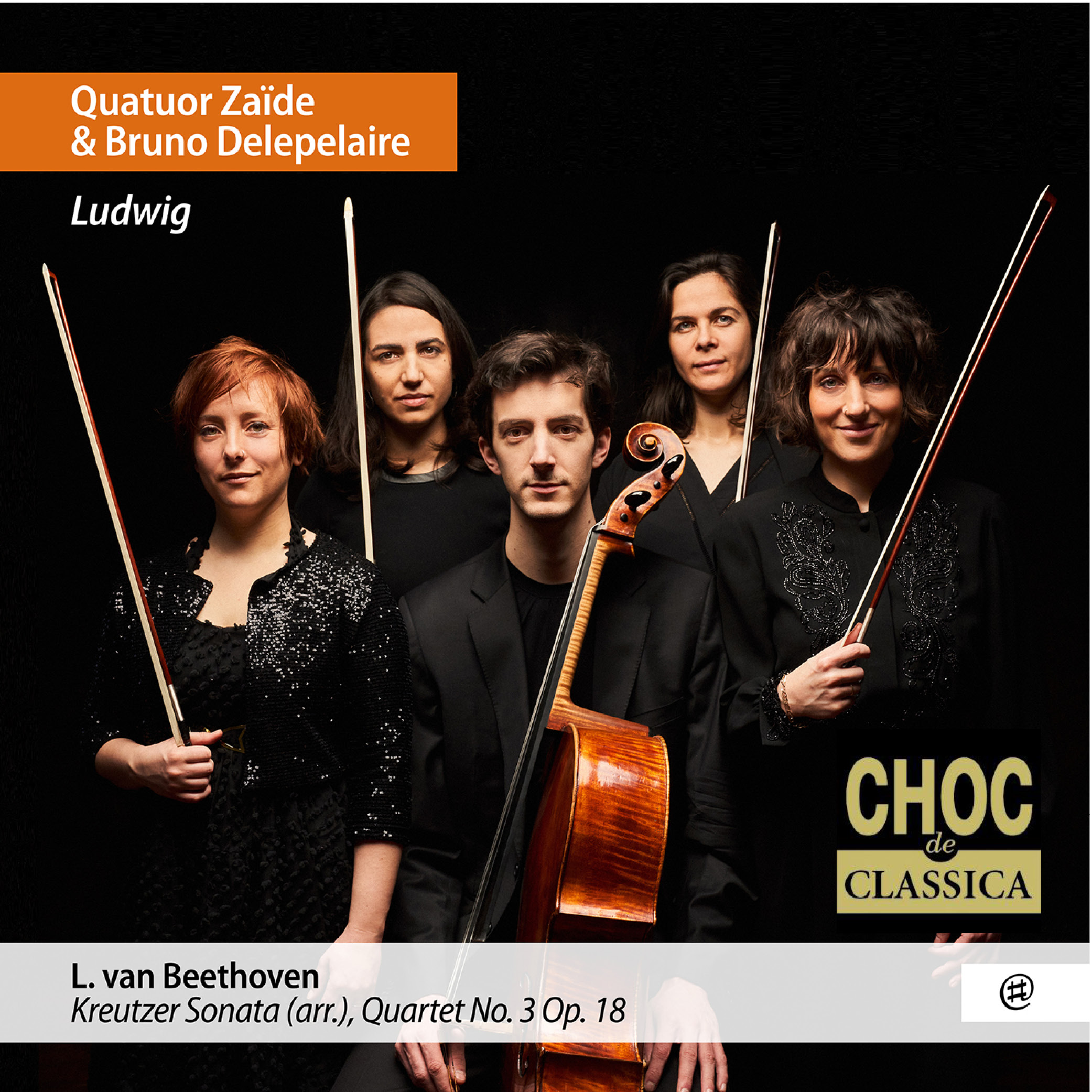
Ludwig
Quatuor Zaïde, Bruno DelepelaireThe Quatuor Zaïde chose to approach this new album by playing with the forces that run through Beethoven’s work. It seemed to them that Greek mythology, the very foundation of our collective imagination, was one expression of these forces.
The power of Prometheus – the “Fire-Bringer” who gave this constructive and destructive force to humanity – underpins all of the composer’s work. Apollo – the god of light, purification and harmony – brightens the Op. 18 no. 3. As for the Violin and Piano Sonata No. 9, also known as the Kreutzer Sonata, it draws its energy in the outrageousness of Dionysus, the god of madness and wine.
The Quartet in D Major, Op. 18, No. 3, (Beethoven’s first quartet) represents the Apollonian side: the work is suffused with an aerial softness, a constant luminosity and an infinite tenderness.
The “Kreutzer Sonata”, which is the ninth piece in the cycle of ten violin and piano sonatas that Beethoven published in 1805, is one of the composer’s best-known works. Four years after his death, an arrangement of this sonata for a Quintet with two cellos – an uncommon arrangement for the time, the origin of which remains unknown – was published in Vienna. The two cellos allow a soundscape almost unprecedented in chamber music, increasing the depth and power of the bass register tenfold. If the original score is virtuosic – its dedicatee even qualified it as ‘unintelligible’ – the transcription is just as thorny: the voices are distributed amongst the chords with impressive minutiae. The rhythmic and thematic elements fuse with one another, passing from one instrument to the next almost imperceptibly. The role of each instrument is constantly redefined, and the original violin part is broken up between the five protagonists.
With
Press Review

“Sonorités pointues, beaux contrastes dynamiques, articulations nettes, tempos presque toujours très vifs, inflexions nerveuses : tout contribue ici à restituer l’énergie dévastatrice, la puissance tellurique de l’original”
Diapason enthousiasmé par la découverte de la transcription pour quintette à cordes de la Sonate à Kreutzer !

A l’occasion de la sortie de leur 5e album, consacré à Beethoven, Camille de Rijck reçoit le Quatuor Zaïde à son micro !
Pour écouter le replay, cliquez ci-dessous.
“Le Quatuor Zaide se produit ici avec Bruno Delepelaire, 1er violoncelle solo du Philharmonique de Berlin. Le résultat est à la fois impressionnant et inédit. De nombreux détails de la partition prennent tout leur sens dans le quintette, surtout lorsqu’ils sont joués avec autant d’engagement et de cohérence musicale.”
Martin Demmler – Fono Forum
Un article à retrouver en intégralité dans le numéro du mois de mai.
